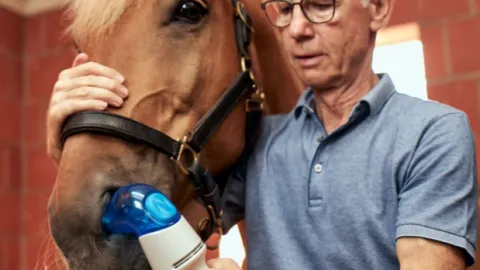Talking Turkey at the EPO
October 20, 2023
A recent letter by the EPO's Central Staff Committee (CSC) about Rewarding quality in the core business is too important and far too well-written to remain unnoticed.
Perhaps unsurprisingly, it confirms the reality of the problems addressed in my earlier posts, e.g. (1), (2) and elsewhere.
Despite its uplifting title "50 years EPC - Rewarding quality in the core business", even the very first sentence of the CSC's letter reveals that this reward is, alas, more wishful thinking that current reality.
«Production is the only thing that guarantees our payslip on the 26th of every month» DG1 director
Very unfortunately, I am afraid that this will not exactly be news to avid readers of this blog.
Let me just add to this one observation of my own. A somehow frustrated European Patent Attorney of my firm recently alerted us to the following:
Dear All,I have a file where the EPO Examining Division issued a Rule 71(3) Communication based on an incorrect text; specifically they based the text on the translated PCT text and not the amended description which was filed at the time of EPO regional phase entry.
This, I think, is the third time that I have encountered this same error.
In a telephone conversation, the Primary Examiner blamed an EPO “system error”.
Because of this EPO “system error”, it is important when checking a 71(3) Communication to ensure that the proposed text incorporates any amendments filed on EPO regional phase entry and not just the amendments made in response to the EESR and Office Actions.
Regards,
Perhaps you have made similar experiences? I am looking forward to your comments.
Nonetheless, let me end this brief post on a lighter note with another quote from the CSC letter:
When meeting with staff, managers talk turkey. When the unofficial management mantra encounters staff resistance, managers cannot limit their instructions to oral ones and lay them down in written form (1).
After some web searching, I found out that the appropriate German equivalent of "to talk turkey" seems to be "Tacheles reden". Tacheles in turn seems to be derived from the western Jiddish word Takhles (purpose), so that to talk Tacheles means speak freely of the cuff / don't mince words.
But since I read this, I can't get the EPO's line managers talking turkey out of my head.
 By ZooFari - Own work, CC BY-SA 3.0, https://commons.wikimedia.org/w/index.php?curid=12164924
By ZooFari - Own work, CC BY-SA 3.0, https://commons.wikimedia.org/w/index.php?curid=12164924
You may also like















Unimportant examiner
To tell the truth, such kind of errors are due in part to the tools; since the paper file disappeared there is no real handy way to keep the overview of the file history. This kind of poorly designed software is a killer in the context of high production pressure, because no one feels responsible or has the time to perform a thorough check.
Max Drei
Thorsten I have to say that I found much of the text in the CSC doc less than clear. In particular, I have difficulty with the sentence immediately following the one that says "When meeting with staff, managers talk turkey". One dictionary gives as an example of the use of "talk turkey" the negotiator who mails his counterpart "Don't bother phoning me until you are ready to talk turkey". Nothing clearer than that. What is unclear is what managers do next, after they have finished talking turkey with staff, face-to-face, strictly off the written record. The final sentence of the CSC doc asserts that what has made the EPO is a success is its staff and the quality of their work. So if EPO management indulges in ever more severe beating of the staff, to flog out of them supposed improvements in "quality", does that mean that the EPO will be less of a "success" in future? Or is "success" guaranteed regardless of management heavy-handedness because of the product which the EPO sells to its customers will always be unique regardless of its quality?
A quality problem at the EPO? You are truly mistaken!
Dear Max Drei, Whilst I was myself first taken aback by the comment on managers talking turkey, I quickly realised that it was a more delicate, positive, etc. way to express discontentment, and avoid using much more drastic words like they take us for cretins or it is a load of b….. In the past, instructions not to abide too strictly by the EPC were given orally by certain directors. Now some directors are not hesitating to put pen to paper and issue in writing instructions which have nothing to do with work of quality. They know that they do not risk anything but being congratulated by the upper management for their active contribution to the output of the office. The problem at the EPO is that the members of the upper management and examiners are all holders of academic degrees. It is therefore difficult to take them for a ride or pull their leg as they dispose of the same intellectual capacities as their superiors. This is dilemma which has never been resolved. The final sentence of the CSC doc is right in asserting that what has made the EPO a success is its staff and the quality of their work. Presently staff earn no more than lip service by the upper management. Quality is, as such, difficult to measure, and hence pure production measurement is an instrument which can show (or not) results. Reading the EPO Quality Charter of a year ago, can only elicit an awkward smile. Nothing in this document corresponds to a tangible reality. I am not sure that all users of the system are happy with the output of the EPO being unique regardless of its quality. It might be interesting for large applicants with their large portfolio of patents: my pile of useless patents is higher than yours, so that I want royalties from you. On the other hand, it can have a devastating effect for SMEs and non-profit organisations if a patent is revoked or null and void. When looking at the number of patents maimed in opposition, it is difficult to claim that the patent granted by the EPO are of high quality. They have great difficulties in surviving oppositions. Oppositions are not a direct measure of quality as not all patents are opposed, but are nevertheless revealing of the underlying problems of quality at the EPO. Even large applicants are slowly getting fed-up with the assertions of the EPO that quality is perfect and there is nothing to change. See the IPQC which has put the finger in the wound. In the long run, I fear that the present upper management of the EPO and the present delegates to the AC are heavily sawing at the branch they are sitting on. The day they will realise it, it will be too late. .